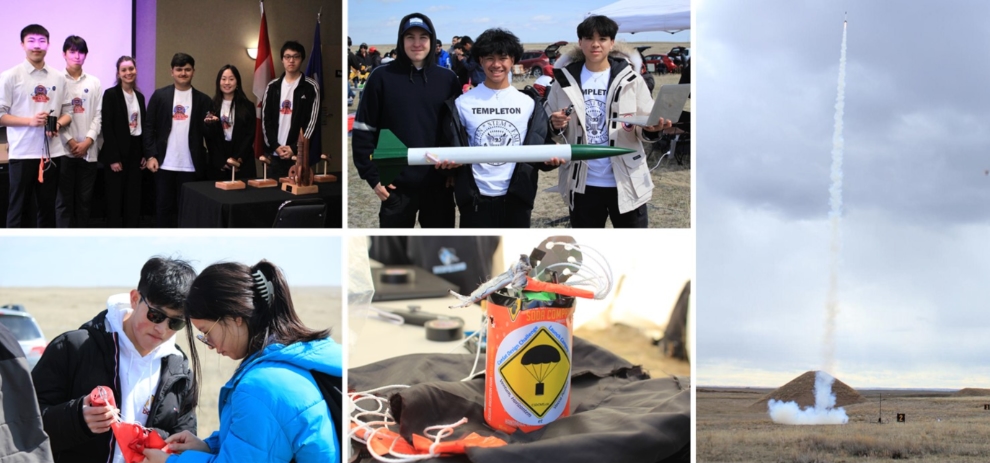The not-for-profit Canadian Satellite Design Challenge Management Society (CSDCMS) has kicked off another round of the CanSat Design Challenge and the CubeSat Design Challenge.
This will be the 7th edition of the CubeSat Design Challenge which is designed for universities and the 4th edition of the CanSat Design Challenge which is designed for secondary schools.
While the Society’s website has information on each challenge, it is their Facebook group where you can get recent news and learn of their events.
The Society describes CanSat as “a simplified satellite, integrated within the volume and shape of a soft drink can, and weighing between 300 and 350g. The CanSat is then launched by a rocket (or dropped from a drone) up to an altitude of approximately one kilometre. Then its mission begins, collecting air temperature and pressure data as it descends by parachute. Data is either stored on-board (Beginner category) or transmitted by radio (Advanced category), and is analyzed after landing. Teams must also design and implement their own secondary mission, of which the possibilities are only limited by the creativity of the students!”

The Society says that in its last CanSat challenge over 50 teams from across Canada participated and this year they are looking to attract 100 teams.
As for the CubeSat challenge, the Society says for this challenge “teams design, build, and test their spacecraft over two years, with educational lectures, hands-on workshop, a comprehensive design review, mentorship from industry professionals, and finally a simulated launch at the Canadian Space Agency’s spacecraft test facility in Ottawa.”
While the CanSat challenge is completed during a school year, the CubeSat Design Challenge takes place over two school years. Both challenges began taking applications in September.
Organizations that currently support the Society’s efforts or have in the past include L3Harris Technologies, Canadian Space Agency, Iridian Spectral Technologies, EarthDaily Analytics, and Telesat.
A new supporter is the Trottier Family Foundation which provided a $10,000 grant in October.
 SpaceQ Space news and analysis.
SpaceQ Space news and analysis.



